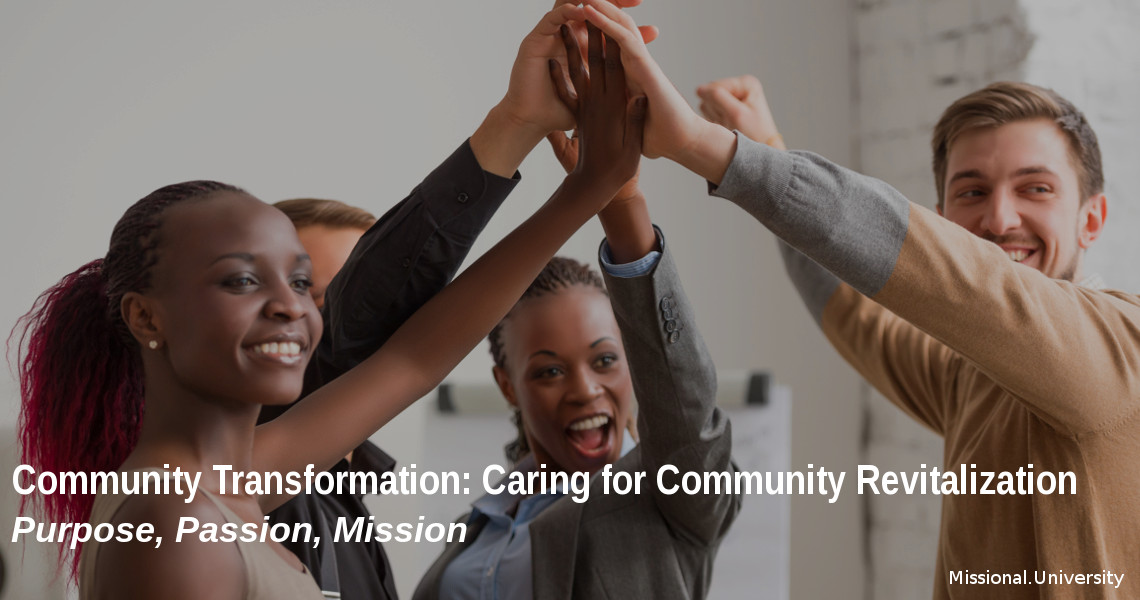DEPARTMENT OF COMMUNITY TRANSFORMATION
Explore Community Transformation
Academic Programs
Dual Enrollment Academies
Certificate Programs
Associate Certificate programs
Undergraduate Certificate programs
Degree Programs
Associate Degrees
Bachelor Completion Degrees
Bachelor 2+2 Degrees
Masters Degrees
- Master of Divinity Dual Degree / MCM
- Master of Community Ministry
Doctoral Degrees
Course Descriptions
Undergraduate Courses
Graduate Courses
Resources
Contact
- Still Have Questions?
- Contact Admissions
Calendar

Welcome
The Department of Community Transformation provides a knowledge base for equipping individuals with the necessary tools to serve in a church or community-based non-profit setting. Students learn how to impact the community, gain an understanding of, and be able to define and participate in the community development process. Students gain insights into the nature of associations and institutions, while being able to identify the difference between relief, betterment, development, and systemic change. Students are introduced to key tools and practices for healthy, sustainable community development, while focusing on the power of listening, and paying attention to detail while working with communities. The Department of Community Transformation is preparing graduates for creating opportunities for transformation through meaningful relationships, work, education, and community revitalization.
Why Community Transformation?
Community Transformation enables students to examine how social change is most effective when people work together in an organized way. This gives the community the power needed to achieve the desired change. Students with the knowledge and experience of community organizing will be better equipped to serve with their community.
Why Missional University?
Community Transformation studies at Missional University are based on the six core values of the University:
Biblically Based:
Students learn to extend themselves through Godly service unto others. As the student reaches out to the community with the message of Christ they will strive to meet them at their point of need and understanding. Understanding better how they have arrived at where they are by examining the positive and negative influences that leads to that end. “For though I am free from all, I have made myself a servant to all, that I might win more of them. To the Jews I became as a Jew, in order to win Jews. To those under the law I became as one under the law (though not being myself under the law) that I might win those under the law. To those outside the law I became as one outside the law (not being outside the law of God but under the law of Christ) that I might win those outside the law. To the weak I became weak, that I might win the weak. I have become all things to all people, that by all means I might save some. I do it all for the sake of the gospel, that I may share with them in its blessings.” 1 Corinthians 9:19-23
Missionally Driven:
Community transformation is grounded in the mission of God through the unity and empowerment that comes in joining God in his redemptive mission. As students go out among individuals from different backgrounds, with the knowledge and understanding of the courses provided to them, MU students will be able to better engage the local environment in ways that strengthen self-sufficiency and sustainability and minimize interaction that strengthens power divides and dependency. Through integrated foundations in theology and mission, students will live out the good news in their neighborhoods and communities.
Interculturally Focused:
The content within the Community Transformation discipline directly strengthens the cultural competence of the student to engage and work with increase knowledge and effectiveness in cross-cultural situations.
Contextually Informed:
The Community Transformation discipline is contextual because it addresses needs in the environment of the person(s) being assisted.
Practically Minded:
The Community Transformation discipline is practical because it gives students the practical tools and insights that they need to create and make a difference in their respective communities.
Experientially Transformed:
The Community Transformation disciple will not only focus on the ideas and concepts that are taught, but will also give students the opportunity to apply them and live them out in their lives. Students will take what they have learned and apply that learning to their specific environment.